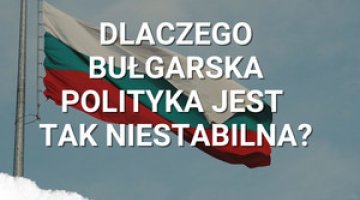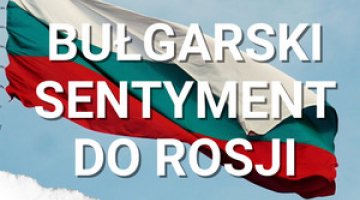Bulgaria: a failed government reshuffle and another early election
On 9 April, Bulgaria’s caretaker government was sworn in with Dimitar Glavchev as its head. Until recently, Glavchev had been the Chairman of the Chamber of Audit (SP) and the former Chairman of the National Assembly. For many years he was linked with the GERB party. At the same time, President Rumen Radev dissolved the National Assembly and called an early parliamentary election, which will be held on 9 June alongside the election to the European Parliament. The new government will rule the country until this date.
The agreement reached following the previous election (in April 2023) between the two biggest parties represented in parliament, GERB and We Continue the Change-Democratic Bulgaria (PP-DB), envisaged the appointment of two rotating governments for a total period of around 18 months. The cabinet led by Nikolai Denkov (PP-DB) resigned on 6 March, after exactly nine months in office, hoping for a quick appointment of another government in line with the agreement. The new government was to be led by Mariya Gabriel from GERB, who until recently had served as deputy prime minister and minister of foreign affairs. However, the several-week-long negotiations were carried out amid mounting tensions (for example, GERB demanded that Gabriel should also retain her post as foreign minister) and ultimately failed. At the end of March, PP-DB rejected the new government line-up proposed by Gabriel, who subsequently notified the president and the parliament that she was unable to win support for her new cabinet.
Commentary
- The failure of the fragile rotating government and the decision to call a sixth consecutive election (the fifth ahead of schedule) since 2021 are proof of the aggravation of Bulgaria’s protracted political crisis, which has been ongoing for several years. Despite GERB’s and PP-DB’s declarations that in light of the current tense international situation these parties intend to stabilise the shaky political scene, the ideological differences and personal animosities (especially between the two parties’ leaders, Boyko Borisov and Kirill Petkov) turned out to be stronger than their readiness to jointly rule the country. These tensions have resulted in a drop in public confidence in the political class. Although according to poll results published in March 51% of Bulgarians view parliamentary democracy as the best possible political system, a mere 13% believe that the ruling politicians are genuinely guided by the citizens’ expectations. Despite the decision to combine the coming early parliamentary elections with the elections to the European Parliament, the turnout is expected to be very low (it is forecast to be less than 40%).
- Recent polls do not foresee a clear electoral victory for any party, and suggest that it may once again be difficult to form a new stable majority. The last few months have seen a minor decrease in the level of support for PP-DB, whose electorate mainly includes residents of big cities. Despite this, GERB will likely be unable to form a stable government without PP-DB, even though it has recorded a slight increase in its level of support. The approval rating for the Movement for Rights and Freedoms (DPS), which represents the Turkish minority, is relatively stable, fluctuating around 15%; and the polls usually overstate the level of support for the nationalist and pro-Russian Revival party. Considering these factors, as well as the waning support for the Bulgarian Socialist Party (BSP) and the There Is Such a People (ITN) movement, whose approval rating barely crosses the electoral threshold, the coming elections do not herald any chance of breaking the political deadlock.
- Despite its short time in office, the government co-formed by GERB and PP-DB was successful in some aspects. With support from the DPS, amendments to the constitution were adopted to curb the competences of President Radev, who is now no longer free to form a presidential government (see ‘Amendments to the Bulgarian constitution: a way to overcome the political crisis’). The outgoing coalition pursued a consistent policy of strengthening the armed forces: for the first time since 1989 the level of defence spending reached 2% of Bulgaria’s GDP, and a third of this spending was earmarked for the modernisation of military equipment. In addition, the government succeeded in finalising the process of Bulgaria joining the Schengen area (albeit only applying to its air and maritime borders) and adopting a package of reforms which are necessary for the planned introduction of the euro in 2025. This also involved a rejection of a referendum on the matter which was proposed by the opposition and the president (at present Bulgaria only needs to meet the inflation criterion).
- However, the Denkov government has failed to make any significant progress in reforming the judiciary, which includes the fight against corruption and organised crime. Although constitutional amendments have been introduced to bolster the position of the Constitutional Court and the public prosecutor’s office, these institutions continue to employ active party supporters. The government also became entangled in numerous scandals; for example, there were regular reports suggesting links between politicians, representatives of the judiciary and criminals. It took many months for a special parliamentary committee tasked with investigating organised crime (which was established on the basis of the 2023 agreement) to start its work, and its activity was paralysed by political disputes. An active fight against corruption and the exposure of scandals linked with organised crime were not welcomed by GERB or the DPS (which supported the rotating government), as these were the two parties most entangled in these practices.




